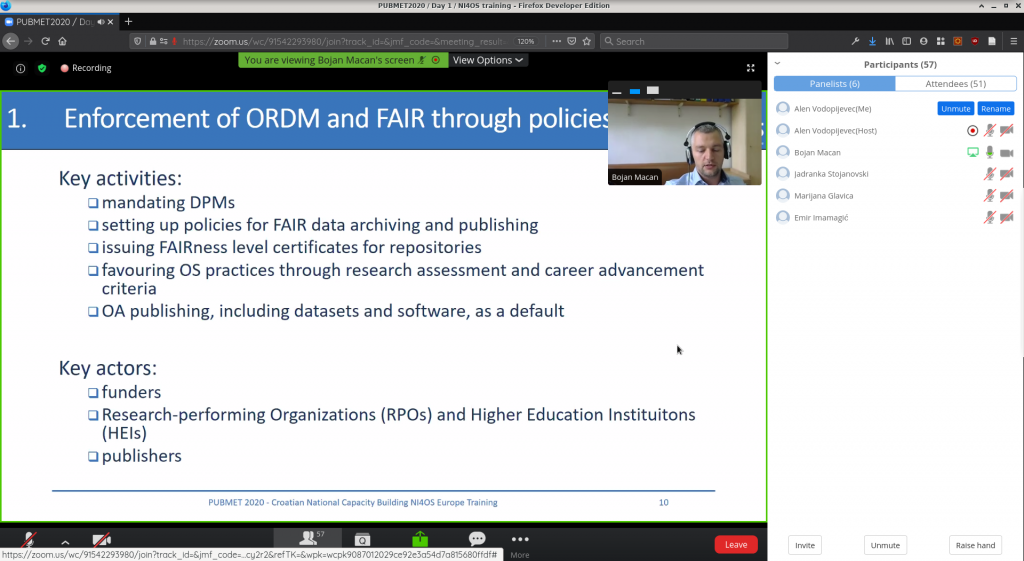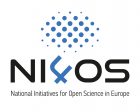National Capacity Building Training for Croatia was collocated with online Conference PUBMET2020 and held online on September 16.
The panelist/presenter were:
- Jadranka Stojanovski, Centre for Scientific Information, Ruđer Bošković Institute ; Department of Information Sciences, University of Zadar
- Bojan Macan, Centre for Scientific Information, Ruđer Bošković Institute
- Alen Vodopijevec, Centre for Scientific Information, Ruđer Bošković Institute
- Emir Imamagić, The University Computing Centre (SRCE)
- Tomislav Lipić, Division of Electronics, Ruđer Bošković Institute
- Davor Davidović, Centre for Informatics and Computing, Ruđer Bošković Institute
- Marijana Glavica, Faculty of Humanities and Social Sciences University of Zagreb

The webinar gave an overview on open science in regard to EOSC, rewards and incentives in open research data management and FAIR principles. The brief introduction about NI4OS project mission and activities was given. The University Computing Centre presented available infrastructure including computational cluster Isabella, PUH (service for storing and managing data), Croatian Scientific and Educational Cloud (HR-ZOO), HTC-cloud, EURoHPC and Croatian Research Information System (CroRIS).
In several presentations were mentioned well known OA portals and projects:

- DABAR (Digital Academic Archives and Repositories),
- HRČAK (Portal of Croatian Scientific and Professional Journals)
- CROSBI (Croatian Scientific Bibliography)
- Šestar (Database of instruments for scientific research)
- National research projects database (PDB)
Also projects related to the social sciences and humanities like CESSDA (Consortium of European Social Science Data Archives), ESFI (European Strategy Forum on Research Infrastructures), CROSSDA (Croatian Social Science Data Archive), SHARE project (SHARE – Survey of Health, Ageing and Retirement in Europe) were presented.
How to catch the EOSC train was shown through practical examples of some generic services like EOSC-hub, EGI infrastructure that provides advanced computing services for research, DARIAH Science Gateway, EOSC market. Among others a very popular bioinformatics web service that summarizes long, unintelligible lists of GO terms Revigo was presented.
The webinar nicely moderated by Alen Vodopijevec, gathered between 50 and 70 participants from all over the world. The participants had possibility to ask questions through Q&A mode.
According to a survey performed after, the webinar was a big success. It was great opportunity to spread the information about NI4OS project and to present ongoing projects within EOSC framework.
